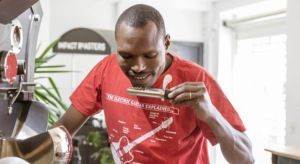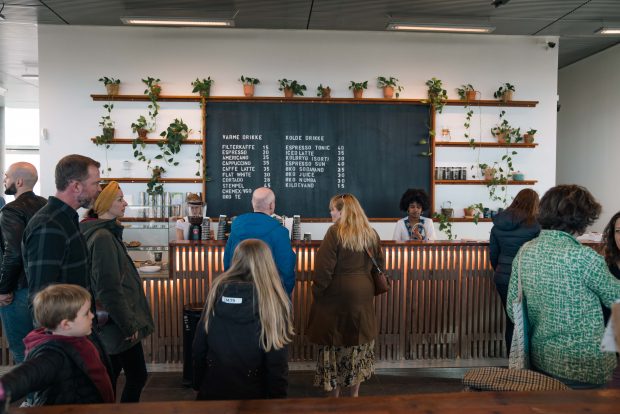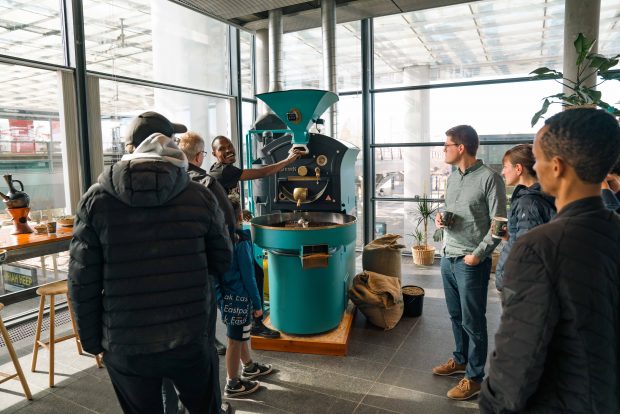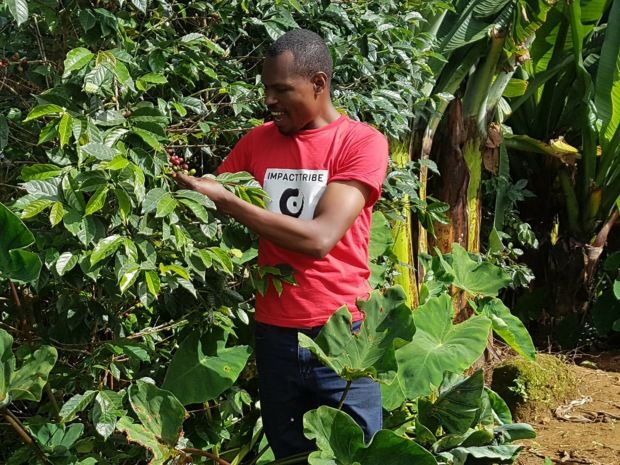News
Beans with benefits: Roasting up an impact in Valby
This article is more than 3 years old.
Cutting out the middlemen enables coffee joint Impact Roasters to embrace direct trade by sourcing its beans straight from farmers in Ethiopia

From farms to Flintholm – Daniel Balla Halalla has it covered (photo: Impact Roasters)
Did you know that Denmark is among the biggest consumers of coffee in the world?
In 2019, the Danes ranked fourth overall – consuming about 8.7 kgs per person every year. Yeah, people here can drink coffee just about any time of the day and occasion.
Another aspect increasingly weighing on consumers’ minds is responsible supply chain management – a company’s commitment to social and environmental efforts when dealing with suppliers.
Perhaps that is yet another reason why Valby-based Impact Roasters has swiftly risen to become one of the most popular coffee joints in Copenhagen.
Its coffee beans are sourced from Ethiopia, where Impact Roasters founder Daniel Balla Halalla hails from.
Impact Roasters negotiates bean prices directly with Ethiopian farmers, cutting out expensive middlemen and securing the farmers a good price for their crops.
The company’s embracement of fairtrade also helps foster education, job creation and social projects in Ethiopia. You can read more about that at impactroasters.dk.

From Addis Ababa to Valby
Since opening its first shop in Valby in 2017, Impact Roasters has opened an additional two shops in prominent locations in the Valby and Frederiksberg areas.
It has just opened a new cafe at Flintholm Station on March 26 to supplement its existing locations at Valby Station and Langgade Station. Needless to say, it was a resounding success.
Halalla, who came to Denmark in 2012 after meeting his future Danish-Bosnian wife in Addis Ababa, grew up in the coffee-rich southern part of Ethiopia and was exposed to coffee farming and processing at a very early age.
When he moved to Denmark, he noticed that the coffee had a different flavour to it – as it was sourced from other parts of the world, such as Brazil.
Roasting up a dream
While studying economics at CBS, he began toying with the idea of starting his own Ethiopian coffee business in Denmark.
That idea ended up leading to running tests in Denmark and his first coffee shipment from Ethiopia arriving in Denmark in 2015, though it wasn’t all smooth brewing initially.
“It was a big challenge to begin with as we didn’t know the market. But we opened up our first shop and roastery at Langgade Station in 2017 and then at Valby Station the following year,” Halalla told CPH POST.
Things slowly gathered momentum from there, despite some expansion plans being put on hold due to the pandemic.

More than a cup of coffee
Halalla is currently in Ethiopia on a business trip – he travels there five to six times a year to oversee the coffee-processing aspect of the business.
It also allows him to keep tabs on his fairtrade model, which means working closely with the farmers and helping them to grow their businesses and communities.
“Creating long-term impact while delivering quality products to customers in Denmark: that’s what it’s about,” said Halalla.
“We want to tell our customers the story about how we bring coffee to Denmark: who are the farmers; who packs the coffee? That helps us make an impact.”

Pick up your CPH POST!
Aside from roasting its own beans and selling quality coffee at its own cafes, it also sells to other businesses.
It also have a mobile coffee cart, so you might run into Halalla when he’s doing his rounds.
So stop by while satisfying your caffeine desires and have a chat.
More likely than not, he’ll be flashing his big, wide smile as you approach. Coffee with a conscience and good vibes … what else can you ask for?
Well … how about reading the Danish news in English as you sip away? Pick up a copy of the CPH POST at one of the three Impact Roasters cafe locations.










































